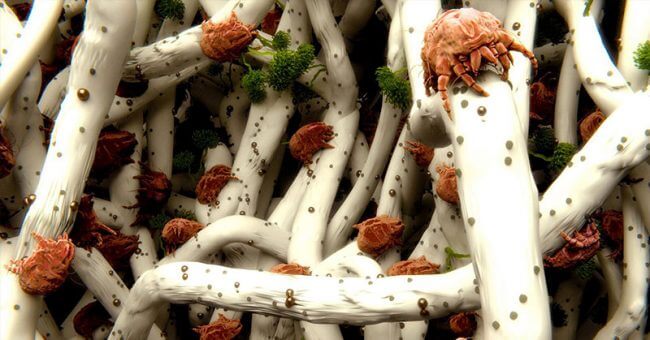How important is for our health to put clean sheets on our bed regularly?
There is one place in our home that should be our special place, the place where we rest, where we keep dreaming, and more precisely the place where the magic happens, that’s our bed.
But, if you are not washing or changing regularly the bed-sheets, trust me on this one, it is far from special.
According to some studies we spend up to 63 hours per week between the sheets, leaving tons of oil, sweat, dirt, dead skin, bacteria, and germs behind.
-- Advertisement --
Dominate The Male Enhancement Niche Today

Dr. Lisa Ackerley, Hygiene Doctor, and Dettol Expert, claims that we become prone to serious viruses and infections unless we wash the sheets weekly:
“Think of all the things you do in bed. Apart from being the place where we go to sleep, it can double up as the home office, the tea room, the dining table or even your dog or cat’s bed.
Depending upon what your bed is used for, and also how clean you are when you get in it (and indeed whether you wear nightwear), your bed can get pretty filthy and may actually be causing your body harm.”
Here are several reasons why put clean sheets on your bed:
1. Dust mites are tiny organisms that can cause allergies, irritate asthma, and even lead to eczema flare-up. They feed of dead skin cells, that we are constantly shedding throughout the day and pile up in the bedding.
2. The sweat, saliva and the thousands of dead skin cells that we leave on our bedding, are a perfect environment for bacteria and viruses.
According to one study, unwashed sheets had between three million and five million CFUs (colony-forming units) per square inch for just one week. Pillowcases had over seventeen thousand times more bacteria than on a toilet seat.
3. Bacteria, dead skin cells, and dirt accumulated on the pillowcase can be the cause for acne.
4. If you wake up with itchy bite marks, they might be caused by bed bugs, blood-sucking insects, that can be killed by washing the sheets with hot water
5. If you have a pet, you must be extra vigilant when it comes to the sheets, as their hair makes the bed even more attractive to dust mites
Now, here are some tips to help you sleep on a clean, safe, and bug-free bed every night:
- Turn back the covers to let the moisture dry for a few minutes before you make the bed
- Wash the sheets once a week with hot water to disinfect them
- Vacuum the mattress a few times a year to remove the allergens that form on its surface
- Do double rinse your sheets, duvet covers and pillowcases. It’s important. Excess laundry detergent residue makes sheets go yellow and a single rinse doesn’t remove it. A build-up of detergent over time will yellow and discolour your sheeting
- You should wash the bedding more frequently if you are sick, sleep nude, or go to bed without showering after a workout or being outside for a long time
- Wash the pillows at least twice a year, as well as the duvets and other coverings
- Change the sheets often if you sweat a lot during the night, you eat in bed, or if you sleep with your kids or pets
- Apart from the use of hypoallergenic detergent, Joshua Zeichner, MD, the director of cosmetic and clinical research in dermatology at Mount Sinai Hospital in New York City, suggests the use of fragrance-free detergent, but only in the recommended amount, as overdosing “ means that the detergent molecules themselves can become lodged between fibers of the fabrics” and lead to irritation reactions.
Sources:
www.rd.com
www.dailymail.co.uk



